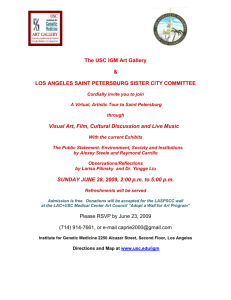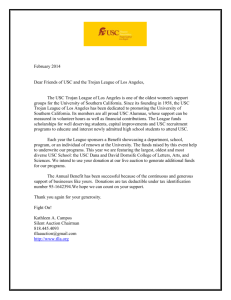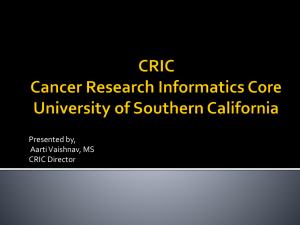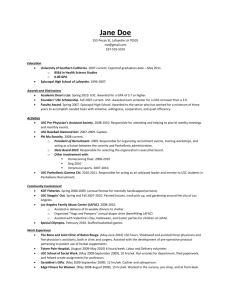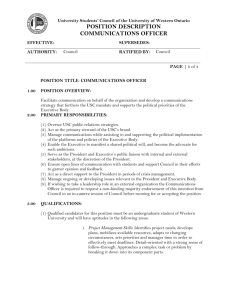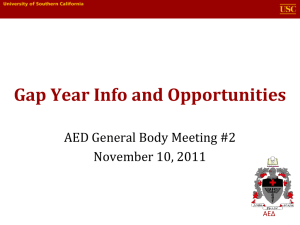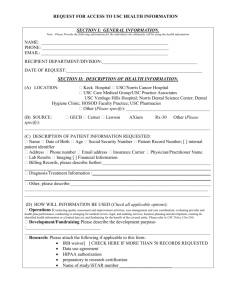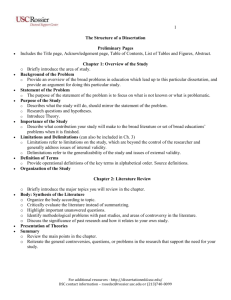Word - University of Southern California
advertisement
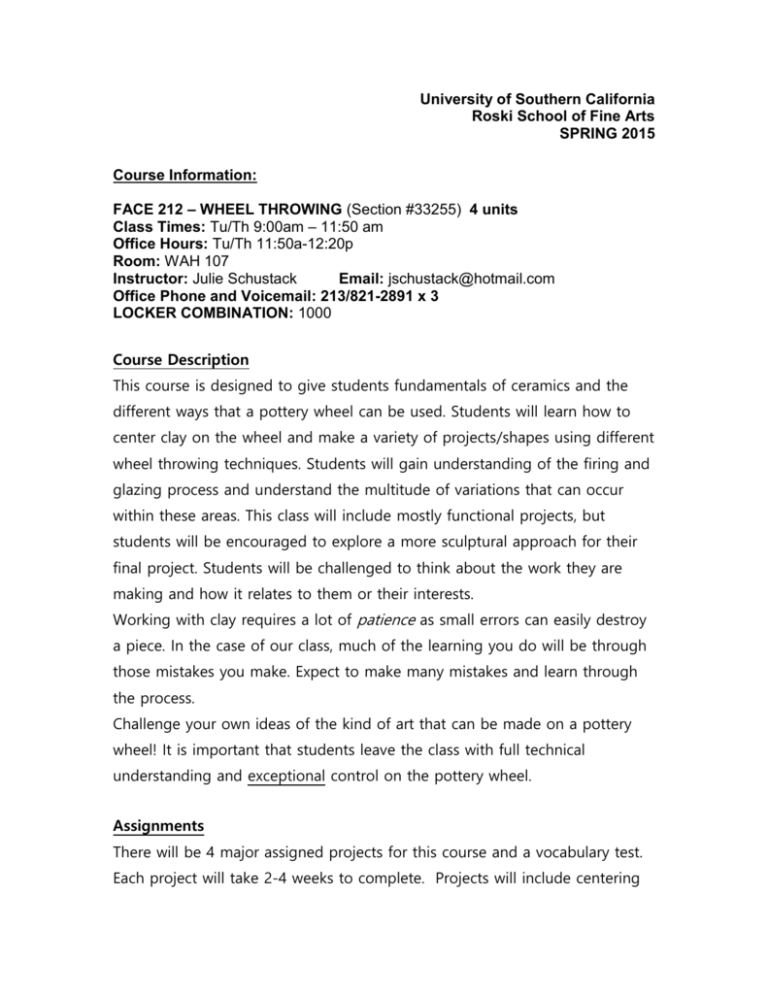
University of Southern California Roski School of Fine Arts SPRING 2015 Course Information: FACE 212 – WHEEL THROWING (Section #33255) 4 units Class Times: Tu/Th 9:00am – 11:50 am Office Hours: Tu/Th 11:50a-12:20p Room: WAH 107 Instructor: Julie Schustack Email: jschustack@hotmail.com Office Phone and Voicemail: 213/821-2891 x 3 LOCKER COMBINATION: 1000 Course Description This course is designed to give students fundamentals of ceramics and the different ways that a pottery wheel can be used. Students will learn how to center clay on the wheel and make a variety of projects/shapes using different wheel throwing techniques. Students will gain understanding of the firing and glazing process and understand the multitude of variations that can occur within these areas. This class will include mostly functional projects, but students will be encouraged to explore a more sculptural approach for their final project. Students will be challenged to think about the work they are making and how it relates to them or their interests. Working with clay requires a lot of patience as small errors can easily destroy a piece. In the case of our class, much of the learning you do will be through those mistakes you make. Expect to make many mistakes and learn through the process. Challenge your own ideas of the kind of art that can be made on a pottery wheel! It is important that students leave the class with full technical understanding and exceptional control on the pottery wheel. Assignments There will be 4 major assigned projects for this course and a vocabulary test. Each project will take 2-4 weeks to complete. Projects will include centering exercises, cups, bowls as well as a larger scale project. This class will challenge your sense of design and students will produce work that is innovative and original. Mastering technique is an important factor in making art, but thinking about what you want to make can be just as challenging as making the object. Students will be given time to think and develop their ideas and will be required to talk about and sketch their ideas. Assignments are designed to develop technical growth, yet allow personal idea development. There will be a class discussion/critique following the completion of most projects. Students will participate by contributing their observations and interpretations of the art. The nature of ceramics is one that requires time. The ceramic process requires time to make, dry, carve/add, dry completely, fire, glaze and fire again. If a student falls behind, there are limitations within the ceramic process that could prevent catching up. Do not fall behind. Again, ceramics can be a demanding material, so it is important to understand its demands and adjust your practice accordingly. In addition, students are expected to spend a minimum of 3 hours outside of class working on their projects each week. The time spent outside of class directly affects 10% of your grade for the project. Drawing, thinking, reading, buying materials and researching also count as time spent outside of class. You have 24hr access to the studio. You are encouraged to use the studio above the 3-hour requirement. Class Procedures: ATTENDANCE Attendance is mandatory. • You are allowed 2 free absence, no questions asked. • For each subsequent absence the student’s letter grade will be lowered by 0.5 grade. • 7 absences and you will not receive credit for the course. • 3 Tardies (or leaving early) become equivalent to an absence. • Being absent on the day a project, quiz, exam, or critique is due will lead to an “F” for that, quiz, paper, exam, or critique. Projects would be considered late unless turned in by a fellow student. • It is always the student’s responsibility to seek means (if possible) to make up work missed due to absences, not the instructor’s, although such recourse is not always an option due to the nature of the material covered. • It should be understood that 100% attendance does not positively affect a final grade. • Any falsification of attendance may be considered grounds for a violation of ethics before the University Office of Student Judicial Affairs. • Attendance will be taken at the beginning of each class. • A student is considered tardy if they arrive to class 1 min after the beginning of class. • Students will be considered absent if they leave without the instructor’s approval before the class has ended or if they take un-approved breaks that last longer than 30 min. If a student leaves class without the instructor’s permission for more than 15 min during or at the end of class, it will be considered a tardy. Any combination of three of the above (being tardy, taking over a 15 min break or leaving early) will equal one absence. The only valid excuse is a medical excuse. Medical excuses will be accepted with a doctor’s note stating that the student is unfit for attending school. Going out of town, getting your girlfriend pregnant, car accidents, family emergencies, or your job schedule will not be excused from this policy. Please do not ask me if it’s ok if you miss class. It’s your choice whether or not you attend the class, I am merely telling you the consequences of your choice to miss class. GRADING Grading System: Failure to attend the final class meeting, complete your projects, or consistently turn in late projects may result in a failing grade. A. Distribution of Grades: PROJECTS QUIZ/PARTICIPATION (clean-up, critique-discussions,reading) -Attendance Points (if applicable) Final grade for Class 90% 10% 100% Each project will be given a grade. Projects are graded proportionally, not equally. In other words, if you worked on a project for 6 class periods it is worth twice as much as a project that you worked on for 3 class periods. Your project will be graded based on completion of assignments, how well you understood and executed the given assignment, and overall development of your work. Project Grade is based on: Quality: Design and Craftsmanship. (60%) Creative implementation: Originality--Creative use of materials and approach. Concept, idea etc…(30%) Effort: Time spent--I grade heavily on how hard you work to complete the assignment. (10%) ***LATE PROJECTS: LATE PROJECTS ARE PENALIZED BY ONE LETTER GRADE. There will be multiple deadlines for each project such as bisque or glazing deadline, however the project is considered late if it is not turned in the on the day of the critique/grading day. If you will be absent on that day, have a friend turn in your project, otherwise it will be penalized. Test: A vocabulary test will be given at the end of the semester. Topics and specifics as well as due dates will be discussed in class. Class Final: The final will take place on Tuesday 05/12 from 8a-10a. We will be conducting the final critique and you will be turning in your final project. No projects will be accepted after this time under any circumstances. In order to get credit for your projects you must turn them in by presenting them to me. Participation/Discussion/Critique At the beginning and/or completion of each project we will have a group critique. The purpose of these discussions is to be curious and critical but not judgmental or dismissive. We will share points of view and ideas about what is working and what is not. We will discuss visuals, function and artist concepts, and we will do so in a civil and respectful manner. For some of you this may be your first experience with group critiques but you are all encouraged and required to make your voice be heard. Your participation in the dialogue of the class is a valued and important part of your grade. For the critique, your project must be completed and glaze fired. You may remake any assignment if you wish to improve your grade on it as long as there is enough time left in the semester. Projects must be turned in by the FINAL day. Studio Safety ALWAYS clean your wheel and the table which you put your projects on. A clean workspace makes the whole experience more pleasurable and rewarding for everyone. Shoes must be worn at all times in the studio. No eating in the studio. No Headphones (speakers ok)-They can get caught in the clay as it’s spinning. Firing Policies Work will be fired ONLY if it is prepared properly! This includes: Greenware must not be solid. Work cannot be thicker than the girth of your pinkie. Work cannot have any trapped air anywhere. Bottom of glazed pieces must be wiped off including ½” from the bottom edge. You must fill out a slip to Glaze fire. Place work on the proper shelf. YOU MUST CARVE WHICH TEMPERATURE YOUR CLAY IS ON THE BOTTOM OF YOUR PROJECT BEFORE IT FIRES. Studio Supplies/Lab Fee The lab fee pays for many of the expendables used in the ceramics studio, such as glazes, stains, gas, electricity, and related equipment. The lab fee also includes 6 bags of clay for the semester. If you use more than that amount you will need to pay for the clay at $6/bag. Store your clay and supplies in shared lockers. Do not store clay and tools on your shelf. Do not share tools. You must purchase your own. If cost is an issue, let me know, but you must have your own tools. You will need the required following supplies by the second class: Clay (available from ceramics department) USC WHEEL THROWING TOOL KIT (from bookstore): This kit includes small sponge, a large sponge, wire tool, large ribbon tool, small ribbon, needle tool, wood rib, metal rib, serrated rib, wooden knife Paint Brushes (from bookstore) for slip and oxide and glaze application. Get a variety; thin for detail work, thick (2” wide) for surface coverage. Both can be found in the bookstore. Exacto Knife #1 (from bookstore) Course Reader (from bookstore) 1 gallon plastic bucket-optional (home depot) padlock for storage locker (shared) “clear” plastic sheeting to keep work in progress damp- dry cleaning plastic works best- optional Cloth towel/Apron/Clay clothes WEAR OLD CLOTHES OR USE AN APRON, YOU WILL GET DIRTY! LABEL YOUR TOOLS WITH YOUR INITIALS OR AN IDENTIFYING MARK WITH A PERMANENT MARKER. Academic Conduct Plagiarism – presenting someone else’s ideas as your own, either verbatim or recast in your own words – is a serious academic offense with serious consequences. Please familiarize yourself with the discussion of plagiarism in SCampus in Section 11, Behavior Violating University Standardshttps://scampus.usc.edu/1100-behavior-violating-university-standards-andappropriate-sanctions/. Other forms of academic dishonesty are equally unacceptable. See additional information in SCampus and university policies on scientific misconduct, http://policy.usc.edu/scientific-misconduct/. Discrimination, sexual assault, and harassment are not tolerated by the university. You are encouraged to report any incidents to the Office of Equity and Diversity http://equity.usc.edu/ or to the Department of Public Safety http://capsnet.usc.edu/department/department-publicsafety/online-forms/contact-us. This is important for the safety whole USC community. Another member of the university community – such as a friend, classmate, advisor, or faculty member – can help initiate the report, or can initiate the report on behalf of another person. The Center for Women and Men http://www.usc.edu/student-affairs/cwm/ provides 24/7 confidential support, and the sexual assault resource center webpage sarc@usc.edu describes reporting options and other resources. Support Systems A number of USC’s schools provide support for students who need help with scholarly writing. Check with your advisor or program staff to find out more. Students whose primary language is not English should check with the American Language Institute http://dornsife.usc.edu/ali, which sponsors courses and workshops specifically for international graduate students. The Office of Disability Services and Programs http://sait.usc.edu/academicsupport/centerprograms/dsp/home_index.htmlprovid es certification for students with disabilities and helps arrange the relevant accommodations. If an officially declared emergency makes travel to campus infeasible, USC Emergency Information http://emergency.usc.edu/will provide safety and other updates, including ways in which instruction will be continued by means of blackboard, teleconferencing, and other technology. Roski admissions information ◄ (Not required for MFA or PAS graduate courses) For information and an application to become a Fine Arts minor, please visit http://roski.usc.edu/minors/ Please contact the art advisors at 213-740-6260 with any questions about a minor in the Fine Arts. To become a Fine Arts major, please visit http://roski.usc.edu/undergraduate_programs/ Please contact Penelope Jones at penelope@usc.edu or 213-740-9153 with any questions about majoring in FA. Applications are due October 1st and March 1st every year.” Instructor reserves the right to change this document as seen fit. All work left at the end of the semester will be discarded.

